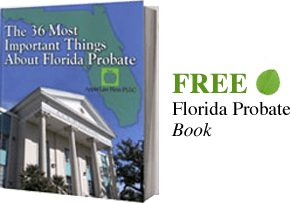Trust Construction
Many clients ask if it is possible to modify an irrevocable trust in Florida. Yes, an irrevocable trust can be modified or terminated. We have had success modifying an irrevocable trust in Jacksonville. Many modern irrevocable trusts permit modification through powers of appointment. Also, under certain circumstances, a trustee or a beneficiary may successfully ask a court to modify a trust when certain conditions have occurred. Convincing a Florida probate court to modify or terminate a trust is no easy task, which is why we recommend hiring a Jacksonville Trust attorney to litigate the matter may be in your best interest.
In Jacksonville, a Florida irrevocable trust can be modified under a few conditions. A court will modify a trust when the trust’s purpose no longer exists, and unanticipated circumstances have occurred. Further, a court will allow a modification to further the purpose of a trust. The Court will also modify trust terms that have become impracticable, wasteful, of would impair a trustee’s ability to administer the trust.
Non-Judicial Modification of Florida TrustThere are ways to avoid a judicial modification. A person can modify a trust if all the qualified beneficiaries and the trustee unanimously agree. A trust modification can occur even if the trust contains a spendthrift clause or another provision that prohibits amendments or revocations of the trust.
According to Florida Statute 736.0412, a court may not allow a non-judicial trust modification in Florida if the trust was created before January 1, 2001. This statute notes the modification may still be allowed under common law, but otherwise, the trust modification must be made by a Florida probate court.
Judicial ModificationWhile a non-judicial modification is a faster process and much easier to perform, getting the consent of every qualified beneficiary is not always easy. This is particularly the case if there are many qualified beneficiaries. In the case that a non-judicial modification isn’t feasible,
As stated earlier, a Florida court can always modify an irrevocable trust if the purposes of the trust have become illegal, impossible, wasteful, or impracticable to fulfill. An example of this would be a charitable trust created by a person with the intent to pass his estate to a local orphanage. If the orphanage no longer exists, and there are no longer orphanages in the state, then a court would modify the trust to leave the estate to another charity.
A court may also modify a trust when circumstances occur the settlor did not anticipate have impaired the purpose of the trust. A good example of this might be when the gift and estate tax changes significantly. For instance, in the last ten years, the lifetime gift tax exemption has gone from 600,000 to over $5 million today. This means that trusts created to shield beneficiaries from strict gift and estate taxes ten years ago may no longer be needed. When this occurs, we can ask a probate to terminate or modify the trust to comply with the new tax code.
The Florida Trust Code allows the probate courts to not only modify or completely terminate a trust. Sometimes it is in the best interest of the qualified beneficiaries to terminate the trust rather than just amend the provisions. For instance, a trust’s principal and income may be so small that the trust administration has made the trust distributions to little to be worthwhile for the beneficiaries. In this case, the probate court can terminate the trust, or the beneficiaries can even terminate a trust if there is unanimous consent.
If you feel that there is something wrong with the way your Florida Trust has been handled, or your assets have not been dealt with fairly, CONTACT our Florida Trust Lawyers by email or call us at 904-685-1200 to discuss your situation today.
If you feel that there is something wrong with the way a Florida Trust has been handled or your assets have not been dealt with fairly, CONTACT our Florida Trust Lawyers by email or call us at 904-685-1200 to discuss your situation today.
 Jacksonville Estate Planning Lawyers Law Office of David M. Goldman Home
Jacksonville Estate Planning Lawyers Law Office of David M. Goldman Home
















